Has Ed Miliband been sexed up? Soaring approval of Labour leader blunts Tory 'play the man' strategy
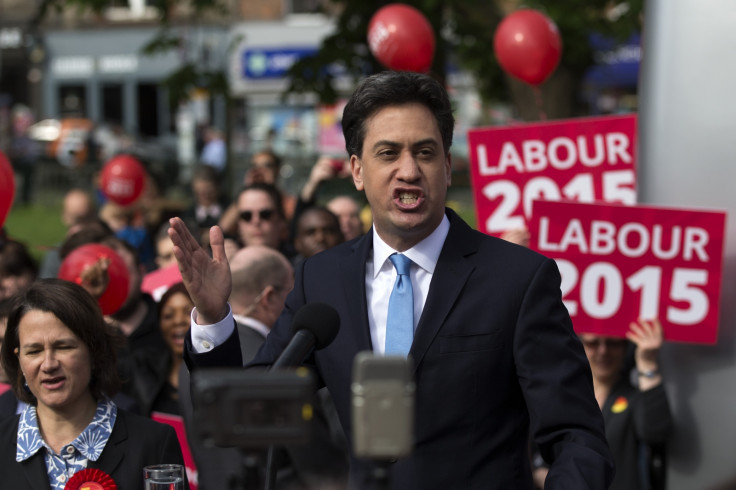
There's no escaping the sharp improvement in Ed Miliband's approval ratings since the beginning of the year. As the election on 7 May approaches, and polling suggests there'll be a hung parliament, the Labour leader is apparently winning more of the voting public over.
According to YouGov, which polls voters on whether or not they think the party leaders are doing well, Miliband's net approval rating (the difference between the total of voters saying well and badly) has shot up from -52 in January to -18 in mid-April. Other pollsters show a similar increase in Miliband's approval rating.
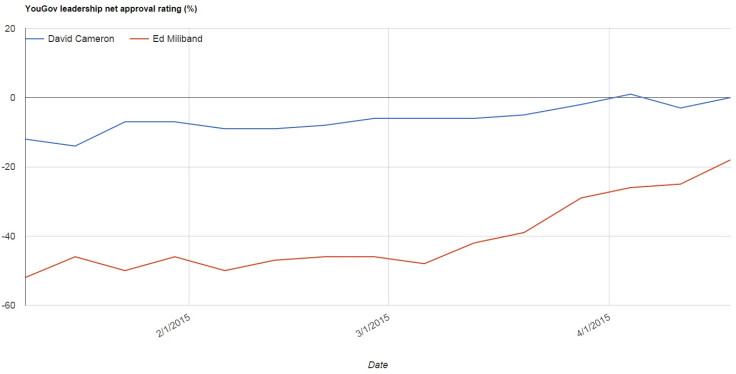
Though still negative, because more people think he's doing badly than well, Miliband's campaign team will undoubtedly welcome the spike in approval for a man defined by, and attacked by the Conservatives for, his image problems.
Cast as a geeky weirdo who doesn't have the leadership qualities required of the British prime minister, Miliband has perhaps benefited from a mass of media attention thanks to the election campaign, in particular the televised leaders debates which have allowed him to pitch directly to voters.

He still comes across as a bit of a geeky weirdo lacking in leadership qualities, but less so than before. He has been confident and assured, seemed less rehearsed than usual in the debates, and is becoming more than just an abstract concept of a politician formed by the often unfavourable media reports about him.
"I think it's basically that he's getting much more exposure in the campaign," Mike Smithson, editor of the Political Betting blog, told IBTimes UK.
"And Labour voters in particular who were quite doubtful about Ed Miliband are now ready to say at last that they have a favourable view, or they've got satisfaction, or whatever.
"They're much more likely to say they're positive about him. I think that's quite significant. I think it probably suggests that the Labour vote is firmer than it was."
There have been a number of moments recently that have helped to define him more positively than before. A selection of Miliband's ex-girlfriends were paraded on the Daily Mail's front page, among them the former economics editor of the BBC, Stephanie Flanders, with tales of "Red Ed" trying to woo two women at once.
But what was supposed to be a classic Mail hatchet job about a caddish Miliband seemed to generate more sympathy than derision, in particular surprise that he even had the ability to attract successful, attractive women. A dark horse. Or, more fittingly, a dark donkey.
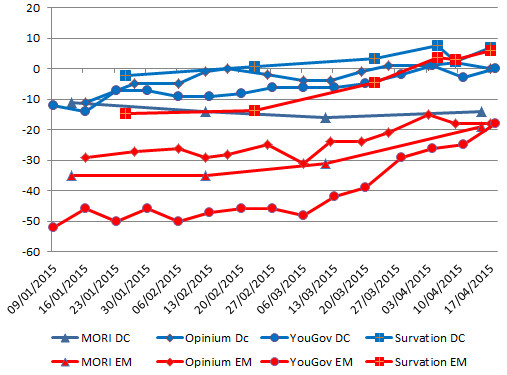
Most recently, footage emerged of a grinning Miliband stepping off his election campaign battle bus into the midst of a Cheshire hen do to pose for selfies. The women cheered as he appeared, posing for photos. Afterwards they described him as "adorable" and "lovely".
Then there were the TV appearances. Most memorably was his joust with the veteran political interviewer Jeremy Paxman, where he held his own better than Conservative leader David Cameron had done against an onslaught of difficult, derisory and sometimes disrespectful questioning. When Paxman asked Miliband if he was tough enough to be prime minister, the Labour leader replied, cringeingly, "hell yes". But the people loved it and a "hell yes" meme of Miliband went viral on social media.
There was his deflecting of attacks from the three left-wing party leaders vying against him -- the SNP's Nicola Sturgeon, Plaid Cymru's Leanne Wood and the Greens' Natalie Bennett -- in the BBC challengers debate between the government's opposition. What was anticipated to be a disaster for Miliband ended in triumph. Post-debate polling said he had a four-point lead over Sturgeon.
And there was something for social media as screengrabs of Miliband's unimpressed "sass face" at Ukip leader Nigel Farage did the rounds on Twitter.
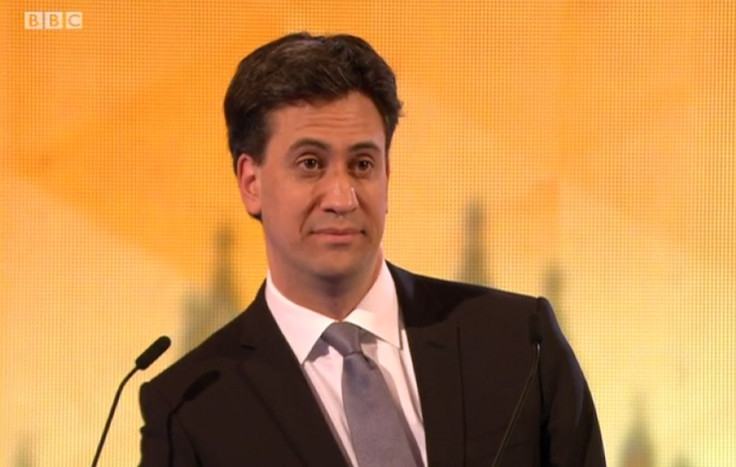
"I think [Miliband] has had a better start to the campaign than the Tories," Smithson said.
"He's tended to look a bit more confident. Certainly right from the start when they had the non-dom thing, Labour sort of had the initiative. And that's continued to stay with them.
"So I think that's been positive. There's a lot of work being done on how he looks and so on in terms of television. It's obviously all been very positive for them."
A string of personalised attacks by the Conservatives also looks to have backfired. The British like an underdog, not a bully. When Michael Fallon, defence secretary, claimed Miliband had stabbed his brother in the back to win the Labour leadership, and was ready to stab the UK in the back too to do a deal with the SNP to secure power in Westminster, it left a sour taste in voters' mouths. It was too much, too personal, too lacerating. It bolstered Miliband rather than burned him.
Miliband certainly has the momentum behind him. It's still neck-and-neck between Labour and Conservatives in the polls, with election watchers suggesting the chances of a minority Tory government are slimming. Could a surge in Miliband's approval rating be enough to unlock the door to 10 Downing Street?
Word of warning: Cameron still polls better than Miliband by some considerable distance and his approval ratings have also improved, though not as markedly. Cameron is seen as more of a leader than Miliband. People think Cameron is more competent, decisive and prime ministerial. But Miliband is seen as more honest and in touch with ordinary people.
Another word of warning: Miliband's improved ratings might not matter anyway. YouGov's director of political research, Anthony Wells, wrote on his UK Polling Report blog that Miliband's rising popularity (or perhaps to put it more accurately, his decreasing unpopularity) will probably have little if any impact on the actual election.
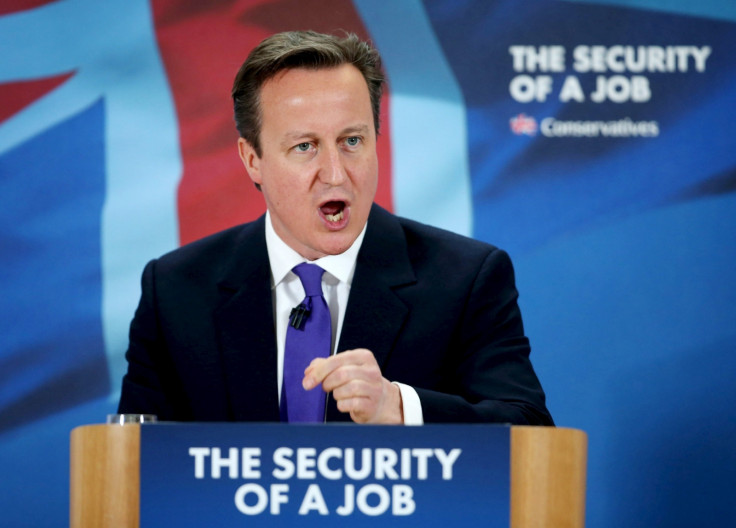
It might make those put off of voting Labour by Miliband's apparent weaknesses more confident about backing his party, though this isn't necessarily a big enough group to make a difference to the election. And, as Smithson also said, it may simply be the firming of the existing Labour vote.
"The big increase is mostly amongst Labour voters, who have rallied behind him," Wells told IBTimes UK.
"But it's not just that – his ratings are up amongst other party supporters too, which is probably down to a fairly positive performance in the debates, interviews and the campaign in general.
"Whether it makes much difference is harder to say. One of the paradoxes of this parliament has been the way that Labour were doing well in the polls at the same time as Miliband had awful ratings, so if his dire ratings didn't hurt them at the time, it's questionable whether them improving will make much difference either.
"That said, the big Conservative hope was that people would recoil from voting Labour because of their lack of confidence in Miliband, so as Miliband's ratings get less bad, the opportunity for a 'stop-Miliband' vote gets less."
© Copyright IBTimes 2025. All rights reserved.






















